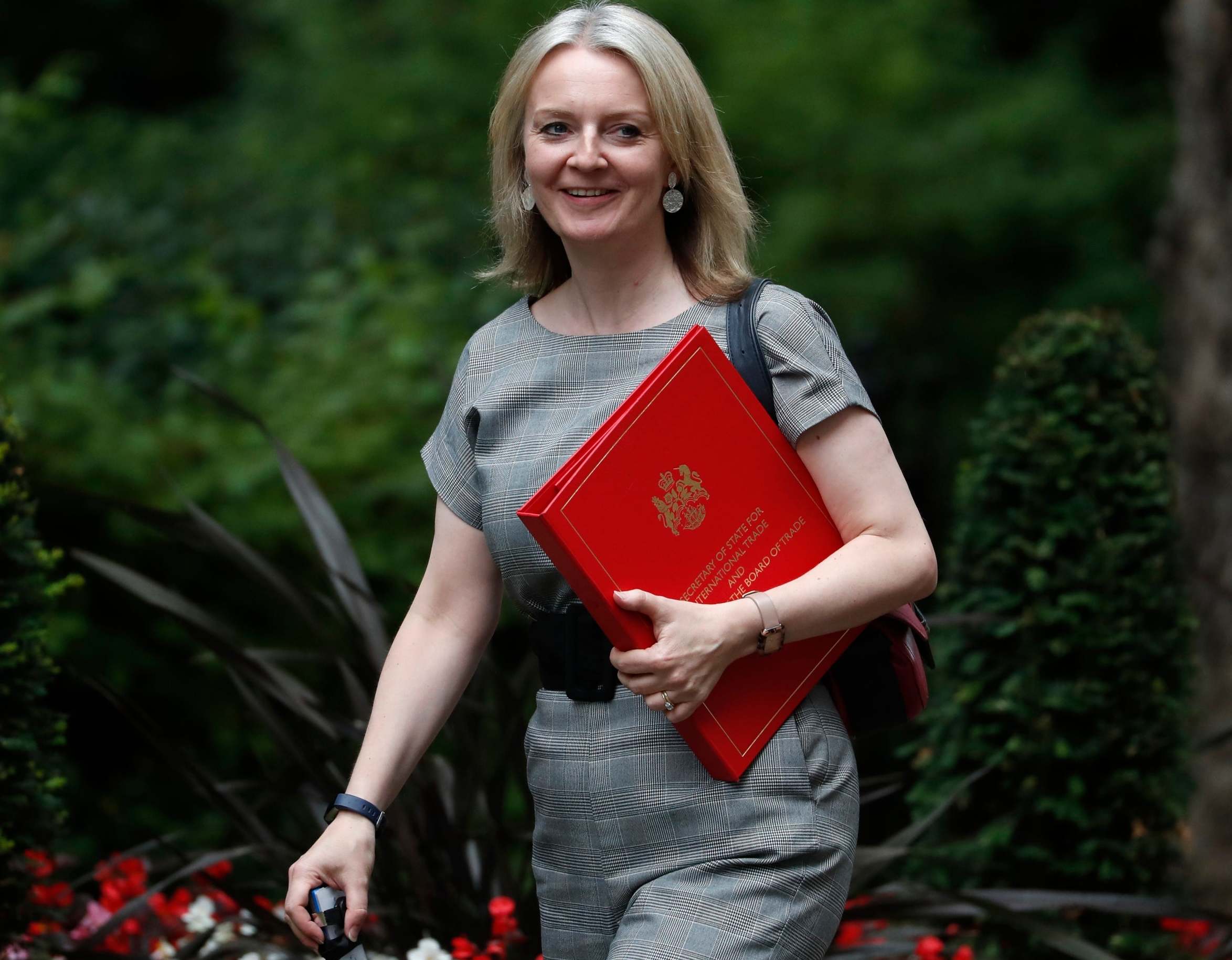Boost to UK economy from US trade deal could be 450 times smaller than loss from no-deal Brexit, government analysis finds
Official document puts likely benefits of free trade agreement with Donald Trump at below 0.2 per cent of GDP – and possibly as little as 0.02 per cent

Your support helps us to tell the story
From reproductive rights to climate change to Big Tech, The Independent is on the ground when the story is developing. Whether it's investigating the financials of Elon Musk's pro-Trump PAC or producing our latest documentary, 'The A Word', which shines a light on the American women fighting for reproductive rights, we know how important it is to parse out the facts from the messaging.
At such a critical moment in US history, we need reporters on the ground. Your donation allows us to keep sending journalists to speak to both sides of the story.
The Independent is trusted by Americans across the entire political spectrum. And unlike many other quality news outlets, we choose not to lock Americans out of our reporting and analysis with paywalls. We believe quality journalism should be available to everyone, paid for by those who can afford it.
Your support makes all the difference.The economic benefit from a trade deal with the US may be as little as 0.02 per cent of GDP – around 450 times smaller than the potential loss from a no-deal Brexit - according to the government's own figures.
A negotiating mandate released by the Department for International Trade put the expected increase in UK GDP from a successful deal at between 0.02 per cent and 0.36 per cent, depending on the scope and depth of any accord.
Critics of Boris Johnson's Brexit strategy pointed out that this was only a tiny fraction of the hit to GDP expected in the case EU withdrawal without a trade deal, which the government has previously estimated at up to 9 per cent.
Labour said the PM's trade plans looked likely to "cost us dearly" while Liberal Democrats accused Mr Johnson of being “seemingly hell-bent on risking UK prosperity”.
But international trade secretary Liz Truss insisted a deal would "cut red tape for our small businesses, cut tariffs for our great products from dairy to cars and increase growth in all four nations”.
And the DIT said that under the best-case scenario, the deal could in crease real wages in the UK by 0.2%, or £1.8 billion.
The 184-page document insisted that the NHS will not be on the table during free trade agreement talks with Washington, expected to start later this month.
“The NHS is not, and never will be, for sale to the private sector, whether overseas or domestic,” it said.
Amid public concerns about US food products - particularly chlorine-washed chicken, hormone-fed beef and genetically-modified crops - the document committed negotiators to “ensure high standards” and protections, while “not compromising” on environmental, animal welfare and food standards.
The DIT document set out two “plausible” outcomes from the planned US talks – a more limited deal delivering “substantial” tariff liberalisation and a 25 per cent reduction in non-tariff barriers, and a deeper arrangement with “full” tariff liberalisation and a 50 per cent reduction in non-tariff barriers.
Under the first scenario, DIT put the likely benefit to UK GDP at between £0.5bn and £3.1bn (0.02-0.15 per cent), with a central estimate of £1.6bn (0.07 per cent).
Under the second, UK GDP could increase by £1bn-£7.7bn (0.05-0.36 per cent), with a central estimate of £3.4bn (0.16 per cent of GDP).
By comparison, the government’s most recent estimate of the cost of Brexit to the UK economy, published in 2018, suggested that a Canada-style free trade agreement could hit GDP by between 3.4 and 6.4 per cent, while a no-deal Brexit – referred to by Mr Johnson as an “Australian-style agreement” – would cost the economy between 6.3 and 9 per cent of GDP.
Monday's publication will increase pressure on the prime minister to spell out his expectation of the likely economic outcome of the deal he hopes to strike with the EU, which was omitted from the document released last week setting out the government's negotiating stance.
Despite casting doubt on the 2018 estimates, Mr Johnson’s government has not so far produced its own assessment of the economic impact of Brexit.
Labour’s shadow trade secretary Barry Gardiner said “we stand to lose more than we gain” under the Government’s proposals, which he said are “likely to cost us dearly”.
“The Government used to talk about ‘the sunlit uplands’ of their plans for the future. Well these uplands look pretty rocky and there’s not much sun,” said Mr Gardiner.

Liberal Democrat international trade spokesperson Sarah Olney said: “Boris Johnson has repeatedly claimed that negative impacts of Brexit will pale in comparison to the benefits.
“But today’s analysis is clear – the gains from the best-case trade deal with Donald Trump will not come close to outweighing what we expect to lose from leaving the EU.
“The situation will be even more catastrophic if Boris Johnson sends the UK careering off a no-deal cliff edge, thanks to his self-imposed June deadline for talks. It is astounding that the prime minister is seemingly hell-bent on risking UK prosperity.
“Liberal Democrats will continue to fight against the PM’s damaging hard Brexit plans. We will continue to push for what is in the national interest – the closest possible relationship with the EU.”
Subscribe to Independent Premium to bookmark this article
Want to bookmark your favourite articles and stories to read or reference later? Start your Independent Premium subscription today.
Join our commenting forum
Join thought-provoking conversations, follow other Independent readers and see their replies
Comments